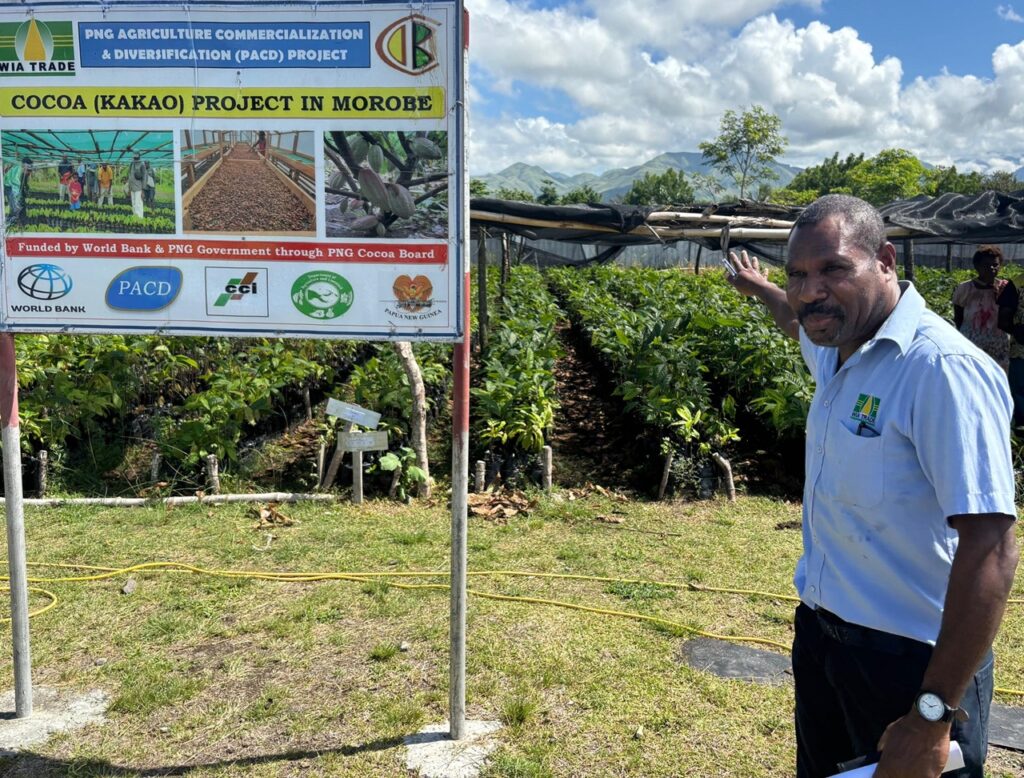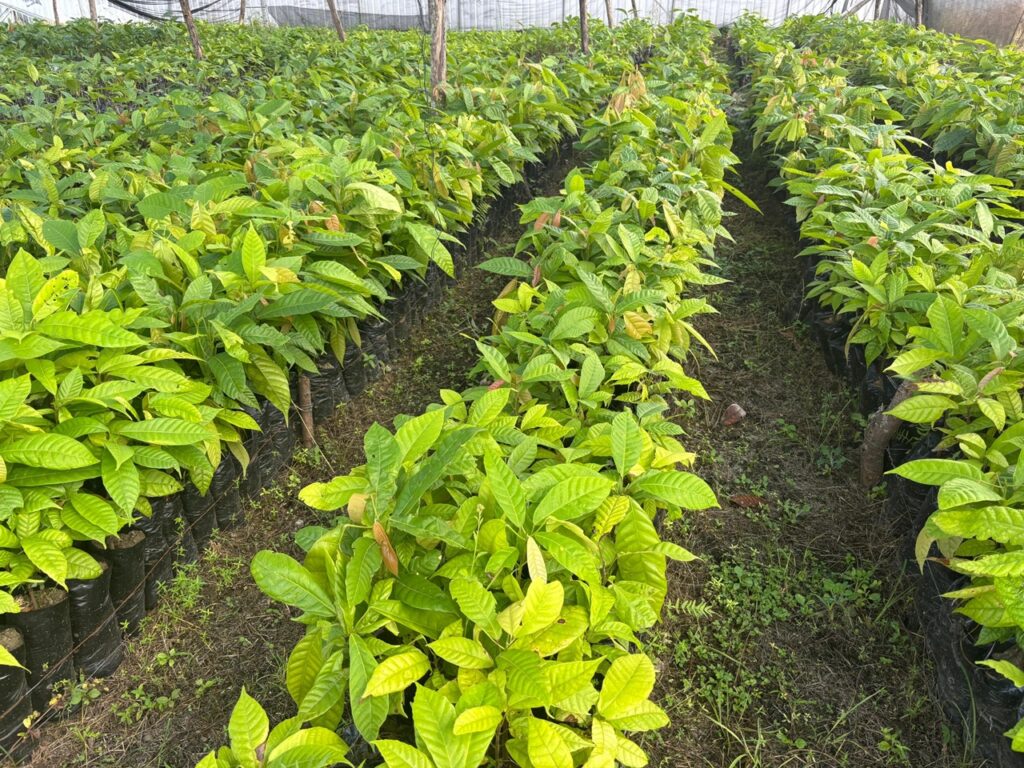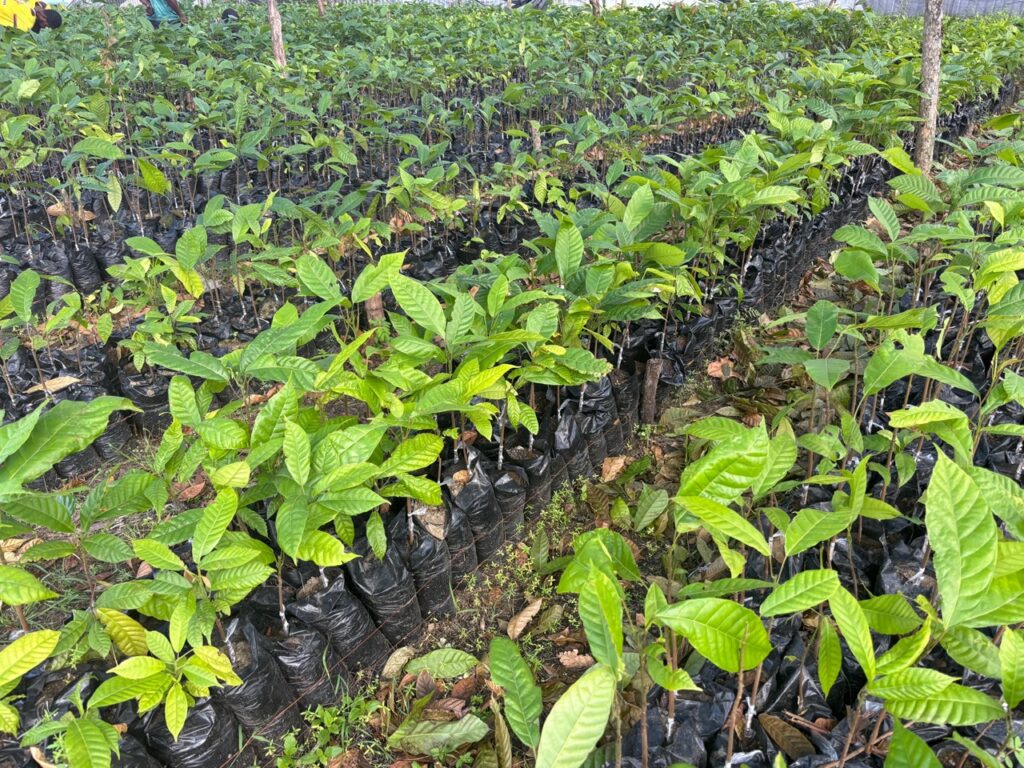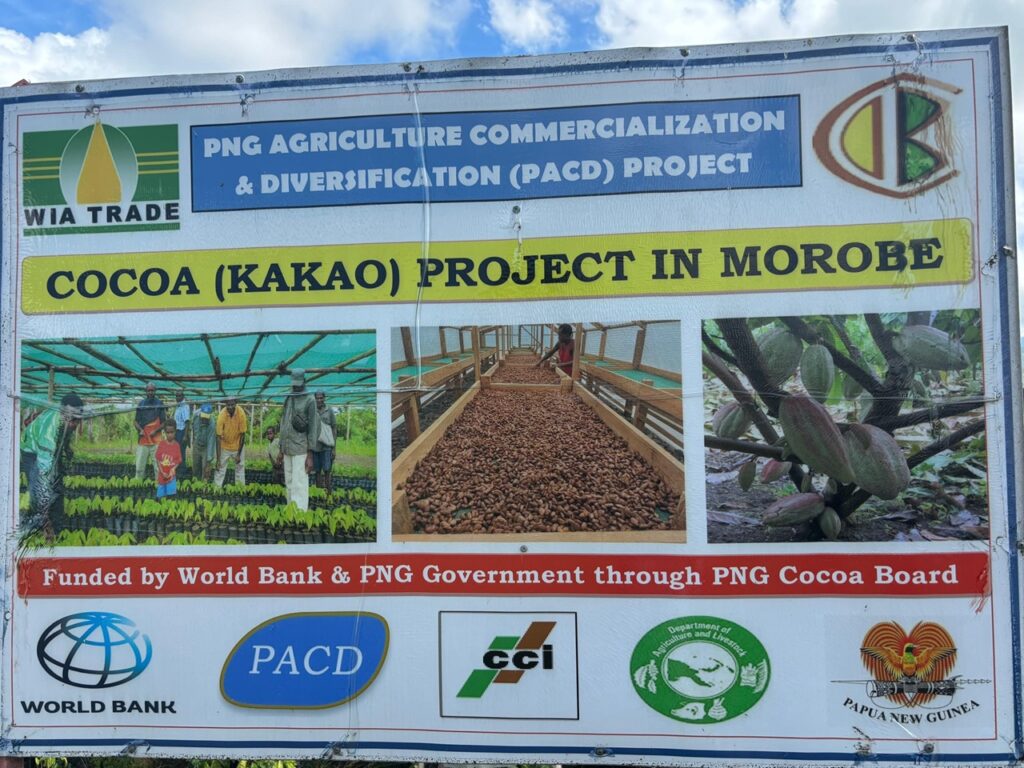Nadzab, Morobe Province | Saturday, May 17, 2025 — One of Papua New Guinea’s most visionary agribusiness leaders, Dr Joel Waramboi of Wia Trade, welcomed a high-level delegation to his Nadzab-based nursery on Saturday, May 17, 2025, showcasing a large-scale cocoa and hybrid seedling operation poised to transform rural livelihoods across Morobe and beyond.
The site visit was attended by officials from the World Bank, Papua New Guinea Agriculture Commercialisation and Diversification (PACD) Project, Coffee Industry Corporation Ltd (CICL), and key national and provincial government departments, who toured Wia Trade’s flagship 24,000-seedling capacity nursery — one of three facilities under the company’s PACD partnership. A second nursery holds 24,000 seedlings and the third 13,000.
Wia Trade is the Lead Partner for the PACD Cocoa Project’s Component 3.1 — Productive Partnerships in Agriculture — a PNG Government and World Bank-funded initiative implemented through the Cocoa Board of PNG, and supported by agencies such as the Department of Agriculture, National Planning, and Treasury. The programme currently works with 500 households grouped in 10 clusters across Wampar/Huon Gulf and Umi Atzera/Markham LLGs.
The total cost of the project is K1.5 million, with PACD contributing K1 million — amounting to 70 per cent of the overall budget. Wia Trade is providing K217,000 in cash and sweat equity, while the participating farmers are contributing the remaining balance through sweat equity.
The project’s main goal is to increase cocoa production and quality, enhance postharvest practices, and ultimately raise farmer incomes. Support includes rehabilitation of 500 cocoa gardens, training in cocoa husbandry, processing and diversified farming, as well as provision of tools like knapsacks, safety gear, secateurs, and bow saws. In addition, two combination solar dryers and a market shed are being built to improve value-addition and market access in the target LLGs.
Dr Waramboi highlighted that the nurseries, which currently have a combined 61,000 seedlings in various stages of growth, are part of a broader drive to supply over 100,000 high-quality cocoa clones and hybrid seedlings to farmers in five key project zones spanning the Huon Gulf, Markham, and Umi-Atzera regions.
“This initiative is more than just seedling production,” said Dr Waramboi. “It is about rehabilitating cocoa gardens, constructing solar dryers and resource centres, and ultimately giving our rural farmers the tools they need to succeed.”
Since late 2024, over 10,500 cloned cocoa seedlings have already been distributed to partner households — a number that Dr Waramboi says is far below actual demand due to intense interest and limited funding. “We’ve registered over 1,200 interested households, yet only 500 are currently being serviced due to project budget constraints,” he noted. “Every day, more farmers are coming forward.”
“If we had K500,000 in additional support, we could easily cater to 2,000 more farming households,” Dr Waramboi stated. “Each seedling costs around K3 to produce, clone and distribute. The maths is simple — the demand is real, and we are ready to deliver.”
To accelerate timelines, Wia Trade has also placed an urgent order for 56,000 hybrid seeds from Tavilo in East New Britain, enabling quicker germination and distribution within three weeks — a shift from the traditional 3–5 month process required for clonal propagation.




World Bank officials acknowledged the impressive scale and organisation of the operation, and stressed the importance of mapping out current demand and preparing for future support. “This is the type of scalable, farmer-driven partnership we want to invest in,” said World Bank PACD Team Leader Allan Oliver. “The demand is high, the systems are in place, and the impact is measurable.”
Wia Trade’s nursery and market development work is underpinned by a long-term commitment to sustainability. The company has committed to working with farmers even after the PACD Project ends, ensuring ongoing market accessibility and continuity in the cocoa value chain.
As Papua New Guinea marks its 50th year of independence, initiatives like Wia Trade’s nursery programme offer a powerful example of homegrown solutions to agricultural transformation — blending traditional knowledge, modern techniques, and smart public-private collaboration.
“This is how we grow the economy — from the ground up,” Dr Waramboi said. “One seedling, one household, one community at a time.”